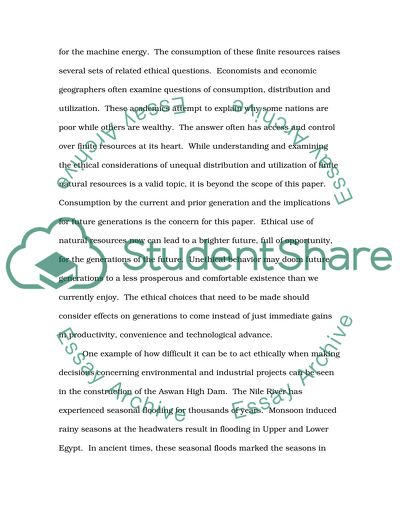Obligations to Future Generations Essay Example | Topics and Well Written Essays - 2000 words. Retrieved from https://studentshare.org/philosophy/1441205-obligations-to-future-generations
Obligations to Future Generations Essay Example | Topics and Well Written Essays - 2000 Words. https://studentshare.org/philosophy/1441205-obligations-to-future-generations.


